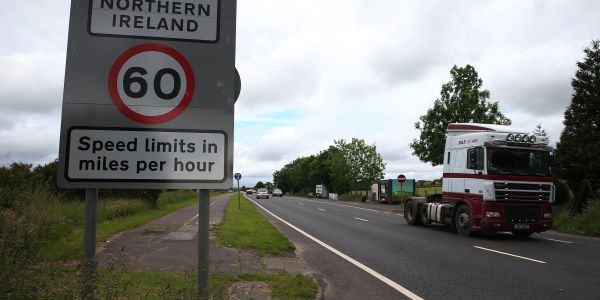A post-Brexit “hard” border between Northern Ireland and the Republic of Ireland must not be allowed to happen, political leaders from both countries have warned.
People and goods going between the two nations have been able to move freely thanks to the Common Travel Area (CTA).
The open borders agreement, set up in the 1920s, has been strengthened by both Britain and Ireland’s European Union membership.
However, questions and concerns have been raised about what this means for the CTA and for both economies in the wake of the UK’s Leave referendum result.
The issue was one of the hot topics discussed at an emergency meeting of the British-Irish Council (BIC) in Cardiff, which was called by Wales’ First Minister Carwyn Jones.
Among heads of government attending the talks were Taoiseach Enda Kenny, Scotland’s First Minister Nicola Sturgeon as well as Northern Ireland political heavyweights Arlene Foster and Martin McGuinness.
Mr Kenny said it was vital there would not be a return to the days of “checkpoints, towers and customs”.
He said: “There are modern ways of not having hard borders.
“I can tell you that hard borders would not be accepted in the south or the north.
“The best possible outcome for everyone is a UK that’s prosperous and has the closest possible links with the European Union.
“For us in Ireland, that means access to the single market.
“And it’s been made perfectly clear by the EU Council that if that is to happen, then the respect has to be there for the freedom of (movement of) people.
“We have difficulties but I expect us to retain the Common Travel Area.
“It’s a fundamental part of who we are.”
Leaders and ministers from eight BIC members – the UK and Irish governments, devolved administrations of Northern Ireland, Scotland and Wales and the governments of Jersey, Guernsey and the Isle of Man – met in the Welsh Government’s Cathays Park headquarters on Friday.
Welsh Labour leader Mr Jones said he called an extraordinary meeting of the council at short notice because of the “tumultuous” political landscape after the EU referendum.
He said: “The council plays a unique and important role in developing positive relationships between its members.
“It is more important than ever to maintain the strength of this relationship and work together to map out a successful way forward.”
Also heralding the talks as the council’s most vital to date was Northern Ireland Deputy First Minister and Sinn Fein MLA Mr McGuinness.
The 66-year-old said he had “no faith” in a Tory Government in Westminster replacing any money lost by being out of the European Union.
He also said he remained concerned by British Prime Minister Theresa May’s comments last month about the possibility of a new border between Northern Ireland and the Republic.
In June, during a Remain vote campaign, the then home secretary said it would be “inconceivable” for there not to be border controls when going between the two countries.
Mr McGuinness added: “I have since spoken to (Northern Ireland Secretary) James Brokenshire, who appears to have a different position. But it will be important to find out the British Prime Minister’s view, because if her position is still the same it represents a very serious issue.”
Northern Ireland First Minister Mrs Foster argued that the establishment of checkpoints in the 1970s had been due to terrorist threats – but said she believed a Common Travel Area would still be possible even with the UK out of the EU.
She said: “It’s not only vital to Northern Ireland, the Republic of Ireland, but also (other home nations such as) Wales too.”
